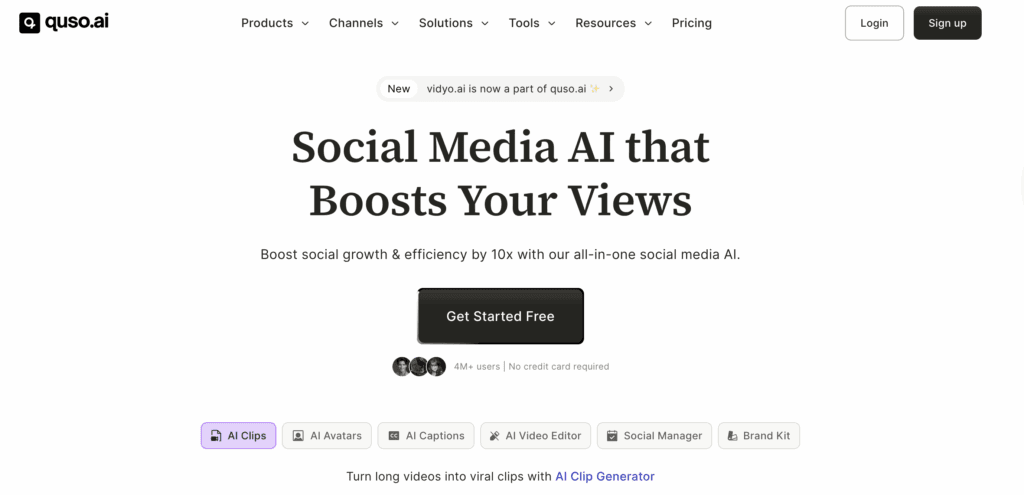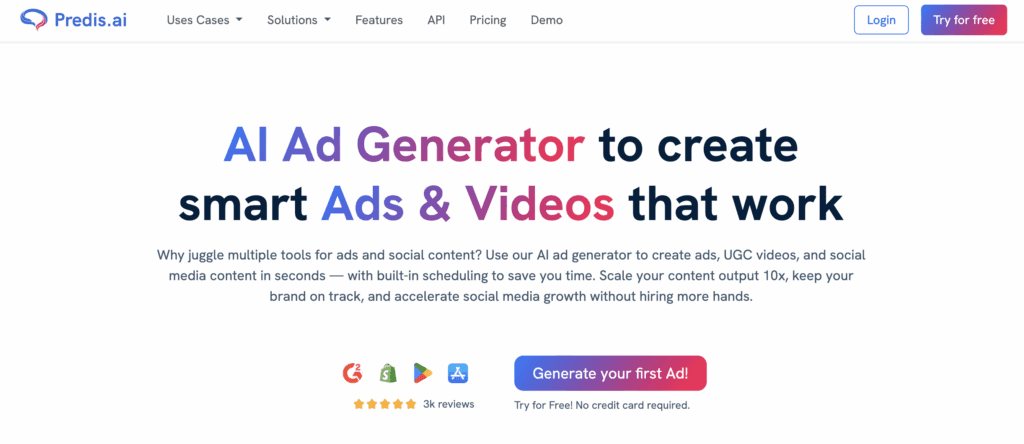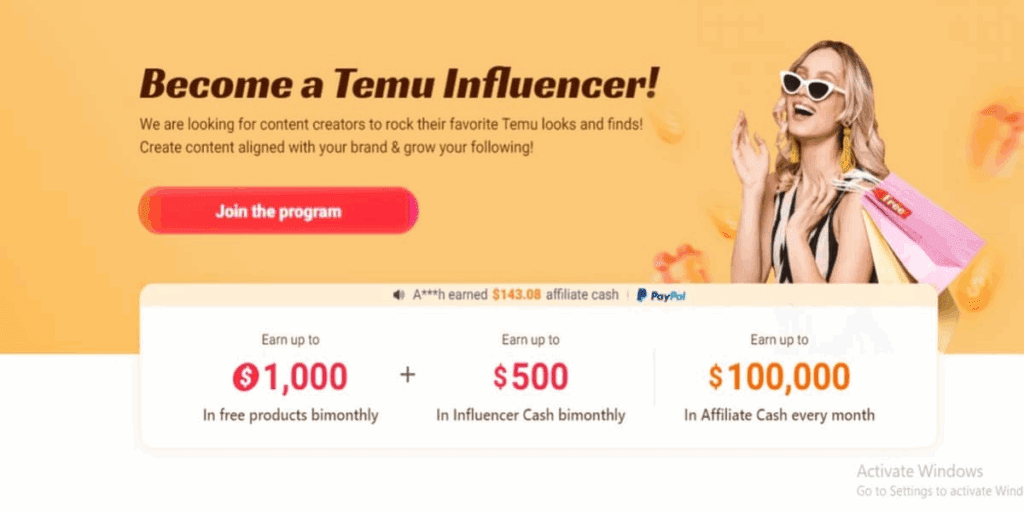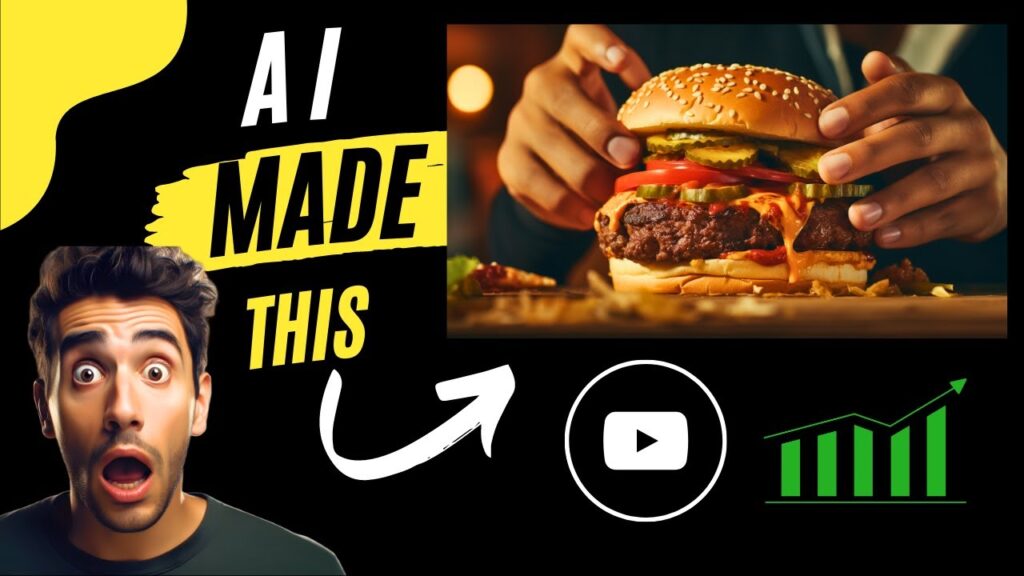Would You Like Your Next Pinterest Ad to Deliver Real ROI?

9:14 a.m. Tuesday. Coffee cooling. Slack pinging. A meeting in 30 minutes. Goal is simple. A pinterest ad live before noon. No jargon. No five-step funnel stories. No 27 open tabs. No guru quotes.
This guide speaks plain English. You open Ads Manager. You pick a goal. You select a format aligned to the goal. You follow pinterest ad specs. You hit publish without drama. Then you scale with a tight loop. Tag and CAPI for tracking. Weekly creative refresh. Budgets steady. Edits in batches. Video variants from photos using VidAU AI.
One small ask. Close other tabs. Bring the coffee back. Your first win starts here.
Quick Start to Your First Pinterest Ad: Launch in 10 Minutes
You do not need complicated processes or endless coffee refills to launch your first pinterest ad. Most teams follow a straightforward approach that balances simplicity with reliable results.
Create Your Campaign
Start by choosing one clear objective such as Consideration, Conversions, or Catalog Sales. Give the campaign a simple name and set a daily budget that you can maintain for at least a week. Keeping one objective per campaign ensures reporting stays clean and accurate.
Build Your Ad Group
Begin with broad but reasonable targeting. Test different approaches, such as keywords, interests, and Actalikes created from high-value events. Keep the creative consistent across groups so you can see which targeting method performs best.
Select Your Creative
Decide whether to promote an existing Pin or upload a new one. Vertical assets are ideal for mobile, and overlay text should be large, bold, and easy to read.
Publish and Monitor
Once you publish your pinterest ad, give it time to collect data. Avoid frequent edits since each change resets the learning phase. Instead, monitor delivery, diagnostics, and events to make sure everything is tracking correctly.
Set Goals and Keep Budgets Steady
Be clear about the action you want, whether it is a click, add-to-cart, or purchase, and align your optimization event and landing page with that outcome.
Avoid Constant Tweaks
Editing too often disrupts learning. Instead, make changes in batches every few days so you can analyse the patterns more accurately.
What Changed in 2025 and Why Your Pinterest Ad Gets Easier
Pinterest introduced new automation tools in 2025 that make running a pinterest ad faster and more straightforward. The most significant update is the Performance+ suite, which reduces setup friction by automating bidding, targeting, and scaling. In simple terms, Performance+ acts like a smart assistant that makes strong choices for you while keeping campaigns aligned with your goals.
When to Use Performance+ for a Pinterest Ad
Performance+ is most effective if you have broad campaign goals, steady budgets, and enough creative assets to give the system options. It is also the right choice if you value speed and efficiency over micro-level control.
When to Stay Manual With Your Pinterest Ad
Manual campaigns are better if you need strict control over budget allocation, want to run narrow tests, or must achieve specific ROAS targets from day one. A practical approach is to begin with manual ad groups, identify winning creatives and targeting, and then move successful setups into Performance+ for scaling.
Why a Hybrid Approach Works
Many advertisers combine both methods by running an automated campaign with Performance+ alongside a manual ad group as a control test. This strategy allows you to compare results directly. If automation performs better, you can scale it with confidence. If manuals deliver stronger outcomes, you have clear insights on how to improve creativity and try again.
Formats That Work for a Pinterest Ad (Plus the Pinterest Ad Specs You Need to Know)
Pinterest provides multiple ad formats, and choosing the right one depends on your campaign objective. To get the best results, it is important to match the ad type with the outcome you want, while following official pinterest ad specs for smooth delivery and approval.
Standard or Static Pins
This format is ideal for quick testing, evergreen offers, and simple how-to promotions. Standard image Pins are easy to create and can run consistently without much editing.
Video Ads
Video ads grab attention and allow you to tell a short story. The sweet spot is 5 to 15 seconds. Vertical or square formats perform best, especially when you place branding clearly in the opening seconds.
Carousel Ads
Carousel ads allow you to display multiple images that users can swipe through. This format works well for step-by-step visuals, feature breakdowns, or product bundles.
Shopping, Catalog, and Collection Ads
If you run an online store with a product feed, these ads are designed for you. They dynamically pull items from your catalog and showcase them with lifestyle imagery and shoppable tiles.
Idea Ads
Idea-style ads are perfect for tutorials and inspiration. They work best in the upper funnel when you want to spark discovery and brand awareness.
Pinterest Ad Specs: The Essentials to Remember
Every pinterest ad must follow official guidelines to display correctly and avoid rejection. The most important pinterest ad specs include using a 2:3 aspect ratio for images, ideally 1000 × 1500 pixels, to prevent awkward cropping. Videos should be vertical or square, with a strong opening and branding introduced early. Titles need to put the hook up front, and staying within 100 characters usually works well. For files, crisp PNG or JPEG formats are recommended for images, while video file sizes should be kept manageable to ensure smooth delivery.
Choosing the Right Format for a Pinterest Ad Objective
The right format depends on your campaign goal. For consideration campaigns, Video or Idea ads are effective for sparking discovery. For conversion campaigns, Standard or Video ads work well when you highlight a clear value proposition. Catalog sales benefit most from Shopping or Collection ads, which allow the product feed to do the heavy lifting.
Image and Video Best Practices Based on Pinterest Ad Specs
Strong creative is just as important as correct formatting. Large, high-contrast overlays ensure readability, and vertical framing fills the mobile screen better than horizontal layouts. Designs should stay simple and uncluttered. If your ad is easy to read on a phone at arm’s length, it is following the best practices of pinterest ad specs.
Collections and Shopping Ads for Catalog Campaigns
Collections ads combine a lifestyle “hero” image with clickable product tiles. This format is excellent for bundling items and works best when your product feed is clean, updated, and accurately mapped to categories.
Creative That Stands Out: Turn Images Into Video for Your Pinterest Ad
Pinterest users browse with purpose. They are planning the finished look of a room, a new recipe, or an upgrade to their beauty routine. A successful pinterest ad should help them picture that “after” state clearly. Strong creative is what separates an average campaign from one that performs consistently.
Lead With the Hook
The opening second of your pinterest ad matters most. Make the benefit clear right away. For example, “Declutter your entryway in 10 minutes” will catch attention far more effectively than a simple line like “New storage shelf.”
Show the Product in Action
Static images rarely create the same impact as a product in use. Demonstrating how an organizer tidies up a messy sink, for instance, feels more persuasive than showing the product alone.
Keep Overlay Text Simple
One short headline is often enough, with a smaller supporting line only if it adds clarity. Large, bold, high-contrast text stands out on mobile screens and ensures your message is not lost.
Upgrade Stills Into Motion
You do not need a full video shoot to add variety. Repurpose static images by converting them into videos. Tools like VidAU AI make it easy to add subtle pans, transitions, or before-and-after effects. Spinning three to five video variants from your best images provides more creative options to test in your pinterest ad campaigns.
Examples of Effective Hooks for a Pinterest Ad
Hooks that work on Pinterest are short, specific, and practical. Phrases such as “Small hallway, big storage,” “Salad prep in five minutes,” or “Mascara that survives humid days” feel natural on the platform and avoid the obvious hard sell tone of traditional ads.
Keep Overlay Text Readable Without Breaking the Design
Readability is important. Avoid thin fonts on complex backgrounds, keep margins safe so text does not get cropped, and allow white space so the product remains the focus.
Targeting Made Simple: The Basics That Power a Better Pinterest Ad
Targeting on Pinterest does not have to be overwhelming. The most effective strategy is to start with three structured ad groups.
Broad + Keywords
Add 10–20 exact or phrase-match keywords that closely match your product and its use case. Keywords capture direct intent from users searching or saving related content.
Interests
Choose 3–5 interest categories that accurately match your target audience. Avoid overly broad categories like “lifestyle” and focus on specific niches that align with your offer. Interests are effective for reaching planners who are in the research stage.
Actalikes
Build Actalike audiences (1–5%) seeded from high-value events such as purchases or leads. These audiences help you scale results by targeting people similar to your best customers.
Run the Same Creative Across All Three Ad Groups
By keeping creative identical, you can identify which targeting type delivers the strongest performance. After 5–7 days, shift your 4 budget toward the top performer. Start with similar budgets for each group so the test remains fair.
Tracking a Pinterest Ad the Right Way: Pinterest Tag and CAPI
Accurate tracking ensures a pinterest ad can be optimized effectively. The Pinterest Tag records browser events such as page visits, adds to cart, and purchases. Adding the Conversions API (CAPI) strengthens tracking by sending the same events server-side, which keeps reporting accurate even when browser signals are limited.
Install the Pinterest Tag
Place the base code across your site and fire events on key actions. This creates the foundation for measuring how people interact with your ads.
Add the Conversions API (CAPI)
CAPI complements the Tag by sending verified data from your server. Using event IDs prevents duplicate reporting, and sharing identifiers improves match quality.
Test and Validate Before Scaling
Always test events before raising budgets. Trigger sample actions, confirm parameters, and review diagnostics to fix issues early. Clean data leads to better optimization and reporting.
Pinterest Ad Tracking Best Practices
Pinterest Tag Basics
Keep the Tag active across your site, validate events in real time, and ensure that important actions are always captured.
Using CAPI for Event Deduplication and Quality
Map events accurately and use event IDs to prevent duplicates. Combined with the Tag, CAPI provides stronger signals for optimization.
Reading Diagnostics Without Guesswork
Pinterest’s diagnostics highlight problems like poor match rates or missing parameters. Address the most critical warnings first to protect campaign performance.
Budget Math for a Pinterest Ad: Sane Bids and Real Benchmarks
Budgeting for a pinterest ad does not require advanced formulas. A few simple calculations are enough to guide decision-making.
Start With Simple Budget Math
Work backward from your average order value and margin to define a target CPA, then use your conversion rate to estimate a target CPC. For example, with a $60 order value and 60 percent margin, spending up to $12 per conversion may be sustainable. At a 2 percent conversion rate, that means a CPC target of around $0.24.
Break-Even Math for a Pinterest Ad
Documenting this calculation in your SOP ensures everyone bids consistently and avoids guesswork across campaigns.
When to Raise Budgets (And by How Much)
Budgets should only be raised gradually, usually 15 to 20 percent after several days of consistent results. Large jumps often disrupt delivery.
Fix Before Scaling
If results are poor, focus on improving creative first, then refine targeting, and finally adjust the landing page. Scale only after proving performance at a small budget.
How to Create a Pinterest Quiz Ad
Pinterest does not have a built-in quiz format, but you can design one using carousels or short videos that still follow pinterest ad specs and convert effectively. A simple storyboard works well: begin with a hook like “Which skincare routine fits your day,” show two or three option frames, and finish with a clear call-to-action inviting users to tap for their result.
The landing page should deliver results instantly and connect each outcome to product recommendations. By mapping quiz completion to a conversion event through Tag and CAPI, you help Pinterest optimize delivery toward people who are most likely to finish the flow.
Retargeting can then be split into two paths: finishers can see product bundles or collections, while starters can receive a simplified message that highlights key benefits. To add engagement, static quiz frames can be converted into light animations with image-to-video tools, creating motion without requiring a full production shoot.
How to Make a Pin on Pinterest
Every pinterest ad relies on strong Pins, so knowing how to make a pin on pinterest properly sets you up for success. Start by creating a board that matches your campaign theme. Upload either a vertical video, a square video, or a 2:3 image to avoid cropping and ensure the Pin looks natural in the feed.
Titles should put the benefit first, supported by a short, scannable description that uses natural keywords. The landing page link must deliver exactly what the Pin promises, since mismatched URLs often cause disapprovals. Also confirm that your boards and Pins are public, because secret content cannot be promoted. Finally, check for simple errors such as blurry uploads or vague titles, as these mistakes are easy to avoid but costly if ignored.
Pinterest Ad Specs You Shouldn’t Ignore
Following pinterest ad specs is essential for smooth delivery and quick approval. Images should use a 2:3 ratio, ideally 1000 × 1500 pixels, to prevent awkward cropping. Video ads perform best when they are vertical or square, open strongly in the first two seconds, and introduce branding early.
Titles should be concise and front-loaded with value, usually under 100 characters, while descriptions need to read naturally without keyword stuffing. Both images and videos should be high quality, with overlays that are bold, clear, and easy to read. Clean composition ensures the product stays at the center of attention and avoids unnecessary distractions.
Who Your Pinterest Ad Reaches in 2025
Pinterest is more than a social platform. It is a planning engine where people save ideas they intend to try, which makes it a perfect place for a pinterest ad.
Products in categories such as home décor, fashion, beauty, and food perform strongly because they inspire people and solve visible needs.
A pinterest ad that shows the “after” state, like a styled living room or a quick meal, connects with how users plan. Start with Idea or Video ads for discovery, then guide buyers to purchase with Shopping or Collection ads.
If Your Pinterest Ad Stalls: Troubleshooting Low Delivery, CTR, or CPA

Sometimes a pinterest ad struggles to gain traction. If impressions are low, the issue often lies in bids or targeting. Slightly increasing your bid or broadening your audience can open up delivery, while over-segmentation usually limits reach.
When clicks are coming in but sales are not, the problem is usually in the handoff between the ad and the landing page. A page that loads slowly, hides the product, or makes the next step unclear will waste valuable traffic. Adding social proof near the call-to-action can also help convert visitors into buyers.
If the ad shows a strong cost-per-click but a weak click-through rate, the creative is likely the issue. The hook might not be obvious enough, or the text overlay might not grab attention quickly. Refreshing the creative, rewriting the headline, or testing a light animated variant can often turn this around.
For campaigns that remain stuck in the learning phase, the best fix is consolidation. Running fewer ad groups with more data in each helps the system learn faster. Adding a couple of fresh creatives, then letting the campaign run without constant edits, gives the algorithm the stability it needs to optimize.
Examples of Real Pinterest Ad Patterns That Convert
One of the fastest ways to improve your pinterest ad performance is to learn from proven patterns. Short before-and-after videos, usually six to ten seconds long, work well because they grab attention quickly and end with a clear call-to-action. Carousels that act like mini-guides also convert, as each card can teach a step and then encourage viewers to click through for the full solution or product kit.
Even a simple adjustment can lift results. For example, turning your best static image Pins into lightweight video ads adds motion and variation without requiring a new shoot. More creative variety means faster learning and more opportunities to connect with the audience.
Conclusion
Running a pinterest ad in 2025 is about consistency, clean creative, and steady testing. Start with a simple three-ad-group setup, track performance with the Pinterest Tag and CAPI, and use automation when it fits your goals. To keep creatives fresh without a full shoot, turn static images into motion with VidAU With this approach, your pinterest ad can launch smoothly, scale effectively, and deliver lasting ROI.
Frequently Asked Questions
1. Are Pinterest ads worth it in 2025?
Yes. Pinterest is designed for planners and shoppers. That mindset means people are primed to save, click, and buy when creative shows the “after” state clearly.
2. How much does a pinterest ad cost and what should I bid?
Use the break-even math in this guide to set your Target CPC and Target CPA. Then scale budgets 15–20% after several days of consistent wins.
3. What are the must-know pinterest ad specs?
Use a 2:3 image ratio (1000 × 1500 px recommended). Keep titles tight with the hook up front..
4. How do I create a pinterest quiz ad that actually converts?
Build it as a carousel or short video sequence. Retarget finishers with product bundles and starters with reassurance. Animated variants from VidAU tool help keep attention without a full shoot.
5. Do I still need the Pinterest Tag if I’m sending events with CAPI?
Yes. Use both. The Tag captures browser events; CAPI sends server events. Together they improve optimization, reporting resilience, and decision quality.





